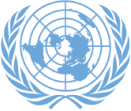Statement by H.E. Michael Ten-pow, Permanent Representative of Guyana to the United Nations on behalf of the Caribbean Community (CARICOM) at the High-Level Political Forum on Sustainable Development panel discussion on “Implementation of the Sustainable Development Goals at the Regional and Subregional Levels”
Thank you Mr. President,
I have the honor to speak on behalf of the 14 Member States of the Caribbean Community (CARICOM). Let me first of all thank the distinguished members of the panel for their insightful and informative presentations and you, Mr. President, for convening this session on the implementation of the 2030 Agenda at the regional and subregional levels.
Mr. President,
One of the key concerns we face in the Caribbean region is the increase in multidimensional poverty. Over the past decade, according to the 2016 UNDP Caribbean Human Development Report, the region has suffered from persistent low growth and an erosion of its human development gains. We’ve seen this in the deterioration in regional human development indicators which show that poverty and unemployment rates, especially among youth, are above the regional average for Latin America and the Caribbean.
Despite our robust political support for the 2030 Agenda, the pace of implementation in the region has been slow. The reality is that the small island developing States that constitute the vast majority of the Caribbean Community remain at the forefront of the global environmental, economic and social challenges that significantly limit our capacity to develop national strategies in a timely manner and to mobilise the necessary resources for implementing the Agenda in a way that ‘leaves no one behind’.
I was pleased to note in that connection that the distinguished Executive Secretary of ECLAC, Ms. Alicia Barcena, referenced in her presentation the high indebtedness of CARICOM countries, which is another constraint on their capacity to drive change. She also acknowledged that our status as middle-income developing countries constrains our ability to attract foreign direct investment. I was encouraged to hear from her that the recalibration of our development category was under discussion.
Against this background, CARICOM sees the regional commissions as essential components of the United Nations Development System. Regional commissions are well-positioned to address regional implementation by integrating the three dimensions of sustainable development into national and subregional frameworks, by providing technical support, and by facilitating effective follow-up and review through the sharing of best practices and discussion of shared targets.
Mr. President,
Tracking progress towards implementation of the sustainable development goals through data collection and analysis remains critical to the review and follow-up of the 2030 Agenda. In this regard, the United Nations Development System, including the regional commissions, has an important role to play in strengthening national institutions in the areas of planning, management and evaluation. This includes strengthening statistical capacities to better collect and analyze reliable, timely, and disaggregated data that could be used to inform evidence-based decision-making and to track the progress of SDG implementation at both the national and regional levels.
We believe that regional commissions are well-positioned to provide the in-depth analysis and expertise needed to promote domestic resource mobilization and public-private partnerships, including the strengthening of both North-South and South-South cooperation, in a manner that provides access to technology transfers, knowledge-sharing and development assistance. To that end, there is need for greater coherence within and between regional and sub-regional bodies in order to enhance efficiency and reduce duplication.
Lastly, Mr. President,
Let me close by saying that CARICOM welcomes the various initiatives undertaken by ECLAC in the Caribbean region. We welcome in particular the workshops held in Kingston, Jamaica and Port-of-Spain, Trinidad and Tobago to assist Member States in integrating the Agenda into their national development frameworks, enhancing national ownership, and strengthening their data and statistical capacities, thereby putting more of us in a better position to conduct Voluntary National Reviews (VNRs) in the coming years. We look forward to continued collaboration with ECLAC towards realization of the Goals and targets of the 2030 Agenda.
I thank you, Mr. President.


